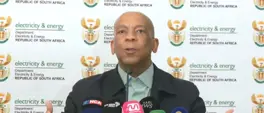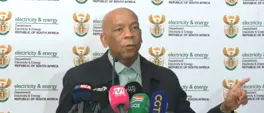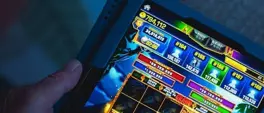Elderly couple forced to sell house after being duped by Elon Musk AI clone
Sara-Jayne Makwala King
19 December 2024 | 11:25Consumer ninja Wendy Knowler says scores of South Africans are falling victim to AI-powered clones and deepfakes.
Nokukhanya Mntambo speaks to consumer journalist Wendy Knowler about a scam using AI-generated deepfake videos of celebrities like Elon Musk to deceive South Africans into investing in dubious schemes.
Listen below.
Some people believe every word from Tesla CEO Elon Musk's mouth.
A swathe of AI-powered 'deepfakes' of the tech billionaire has been wreaking havoc in South Africa, as people find it hard to differentiate the real from the fake.
Hyper-realistic clones of high-profile figures like Musk are used to trick unsuspecting victims, often convincing them to part with their cash and invest in dodgy investment schemes.
Knowler says that for the tech-savvy, it's easier to determine authenticity.
"So, the lip sync is off, the accent is not quite right... The video quality is off... They're getting better all the time... They are good enough to fool a lot of people."
- Wendy Knowler, Consumer journalist
Indeed, says Knowler, scores of South Africans have already been duped into investing in dodgy schemes.
"I'm getting the emails from people who have fallen for them."
- Wendy Knowler, Consumer journalist
One victim, an elderly woman and her husband, were scammed by a deepfake of Elon Musk urging people to invest in Bitcoin.
The fake Musk told the couple they could earn R30 000 a day after investing just R4000.
"Crazy! This man paid the R4000 which he was told was for an educational session on Bitcoin investments... Common sense should tell you this is highly unlikely."
- Wendy Knowler, Consumer journalist
The sad part, says Knowler, is that the scammers convinced the couple to download the remote access program AnyDesk.
"Now they're controlling the device and they manipulated them into sharing their banking credentials."
- Wendy Knowler, Consumer journalist
The scammers emptied the couple's bank accounts and ran their credit cards to their limits.
"Now they are destitute and in the process of selling their house."
- Wendy Knowler, Consumer journalist
Knowler says the banks have been unable to assist because the couple 'knowingly' (although through deception) provided their bank details to the fraudsters.
"The banks refer to it as giving the keys to the safe and there's multiple warnings about this sort of thing and clicking on links and so on. If it went to the banking ombud... it wouldn't find any liability on the bank's part."
- Wendy Knowler, Consumer journalist
ALSO READ: Booking.com scam: 'DO NOT click on the link! But if you do, call Wendy Knowler'
Scroll up to listen to the full interview.
Get the whole picture 💡
Take a look at the topic timeline for all related articles.














